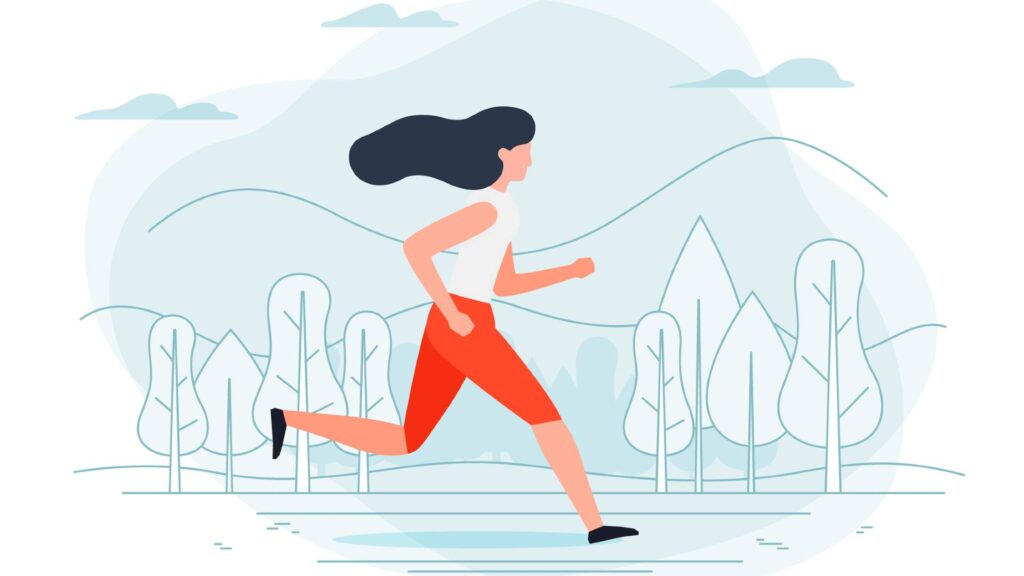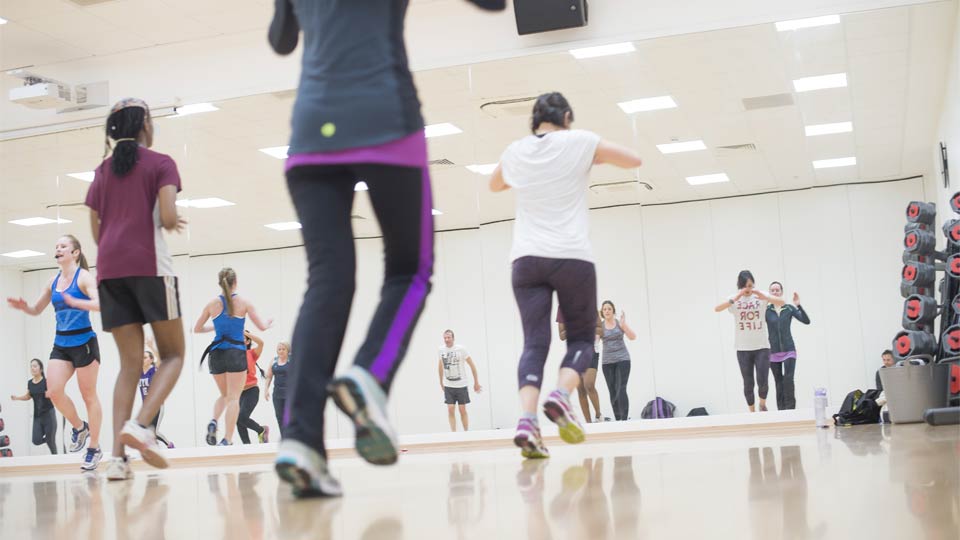5 Ways to Wellbeing: Be active

Image: Courtesy of Getty Images
One of the best things we can do for our mental health and wellbeing is to be active – it’s a natural mood booster.
This could be by attending a gym or a fitness class however the areas in the world with the highest longevity, ‘Blue Zones’, don’t use gyms but instead incorporate movement into the everyday.
Walking more is very beneficial and the target of 10,000 steps is arbitrary but it sets us in the direction of becoming more active. You could start with something simple such as parking further away from your office to increase your daily steps.
Being more active has been shown to reduce health risks such as Alzheimer’s, cancer and diabetes as well as improve our mental wellbeing. When we’re active, our bodies release endorphins which are feel-good hormones that can reduce anxiety and stress and can help us sleep better. Discover how weightlifting helped Syuhaidah Ahman, a Loughborough graduate.
There are lots of affordable and free ways to get moving for all ages and levels of physical ability, such as the NHS Couch to 5K and Active 10 apps, so we can all benefit.
We also need to remember to look after our muscles. Once we pass the age of 30, we begin to naturally lose muscle mass, but strength training helps to reduce this risk. Cormac Ryan, Head of Performance Services/Senior Strength and Conditioning Coach (Commercial) at Loughborough said: “Engaging in regular strength training, such as weightlifting or bodyweight exercises, helps to counteract these effects by building muscle, enhancing bone health, and improving overall functional fitness.
“Also, strength training contributes to a better metabolism, joint stability, and balance, fostering independence and a higher quality of life in later years. By maintaining strength and mobility through consistent strength training, individuals can enjoy increased vitality and maintain their autonomy for longer, ultimately promoting healthy and active ageing.”
Physical activity can also be a great way to build relationships and connect with others. Joining a sports team, taking a group fitness class, or going for a walk with a friend can all be excellent opportunities to socialise and improve our mental health. University staff have access to the MyLifestyle programme, a free and inclusive recreational sport and physical activity offer, open to everybody of any ability. Sports and activities take place during a weekly timetable, these include football, wheelchair basketball, yoga and much more.

Alexander Themis, Recreational Sport and Physical Activity Coordinator said: “The Recreational Sport programme prides itself on offering all sports and physical activities entirely free of charge. What’s more, the friendly and welcoming nature of the volunteer workforce ensures everyone feels right at home. We understand the importance of wellbeing, and that’s why we emphasise a non-pressured, non-competitive environment where users can enjoy sports and physical activities without the fear of judgement.
“Participants often describe the programme as fun, social, and friendly. Besides the physical benefits, the programme is an avenue to forge lasting friendships and connections that extend far beyond your time at the University. It’s not just about playing sports; it’s about finding a sense of belonging and becoming a part of our close-knit community.”
The best way to stay active is to do things that you enjoy. If the gym is not your thing, the outdoors can be your playground. If you are self-conscious about exercise, many online options are available too.
Tips to help you boost your activity levels
- Go for a lunchtime walk with colleagues on campus, the London campus also has a range of walks to try.
- Set an alarm on your phone to remind you to move every hour.
- Explore local activities available through Active Together.
- Explore the LU Arts sculpture trail or Fruit Routes.
- Try a five-minute kitchen workout whilst cooking.
- Enjoy free yoga videos to help with strength and flexibility.
- Find a walking route in your local area.
- If you use a wheelchair, read the NHS fitness advice for wheelchair users.
- Find out how you can get involved in sport on campus.
- Visit one of the world-class gyms on campus and try our recommended back-to-basics workouts.
- Swim in the 50-metre swimming pool on campus.
- Try a walking challenge such as the 12,000 steps a Day in November Challenge.
When discussing wellbeing, the Mental Health Foundation states that “we need to change how we view physical activity in the UK to not see it as something we ‘have to do’, ‘should do’ or ‘ought to do’ for our health. But as something that we do because we value its positive benefits to our wellbeing.”
Health and Wellbeing
Wellbeing means being in a positive physical, social and mental state. Wellbeing is important to us as happy, healthy people who achieve harmony in their work / life mix are more creative, productive and help to create a great place to work.